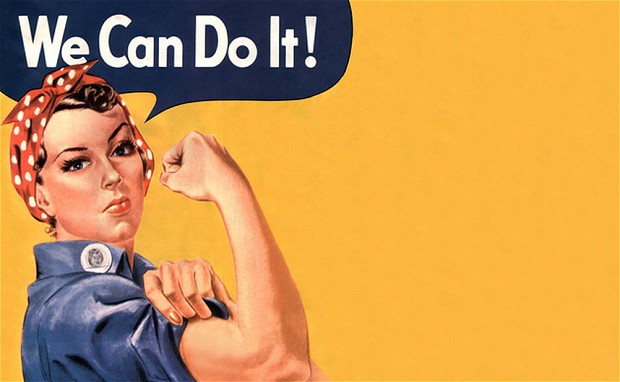The importance of Feminism for men and women
With the social rights movement in a more powerful position than ever, the feminist cause is encountering a major drawback: the movement in regards to certain types of men who feel as though they are on a higher social tier than women. By now, these men should realize that the ideals of feminism benefit the male gender as well as the female, but instead, they have launched a full-fledged attack against its empowering ethics.
As women gain a larger foothold in society today, some groups of men begin to bring up now obsolete, and rather childish arguments such as “can I punch women?” and “what if they gain more rights than me?”. This only stops the progressive fight for equality, as feminism attempts to put men and women on a completely equal playing field. A man, or a woman, shouldn’t punch anyone. Men won’t lose rights if women gain more; it’ll simply allow them to work with the opposite gender. With more and more men finding an increasing faith in feminism, one should find it easy to ditch these arguments and join women and men in a rise for equality.
The importance of feminism for men relies on a simple fact, and that is that the concept of equality is not endangering, and never has been. But if men want to strive for equality, they must first accept a reality that surrounds themselves first: men are put in a position of power by society.
This is not to downplay how men feel, and whether or not all of them are “monsters.” It is instead to state that the entire point of feminism is to lift women up to the same level as men, which is currently a higher social and economic tier.
Women are currently paid 77 cents to the man’s dollar, and this has been proven by numerous research cases from colleges and economic professors (Huffington Post). It becomes monumentally worse from there when one throws race into the mix. The wage gap hits black and latina women most, ranging from 55 to 64 cents to the man’s dollar.
This noticeable wage difference also radically affects the economy, because it renders women without food on the table, without funds, and without means to make ends meet. The cents add up quickly, leaving women with thousands of dollars less than men.
The social view of women does them no justice either; women are either seen as submissive housewives or woeful princesses in need of a man’s love and affection by groups of men who feel entitled to women, either as objects or as helpless ladies that are in need of a male savior. Looking at women in either of these ways is not suitable for the modern day approach to feminism.
The truth ends up being that women can turn out as submissive or as independent as they want to be because of an undeniable, completely comprehensible fact: women are people, and they possess a range of emotions and morals and standards that are complex. As a culture, however, we generalize all of them with the description of “too complicated.” This sooner denies women their own humanity because we refuse to acknowledge the complexity of human life.
As we grow up and figure out ourselves, we must be open to an equal and smart surrounding. Within feminism lies understandable and meetable ideals for the treatment of women, as well as men.








Madeline Holway • Mar 13, 2015 at 12:05 pm
I love your opinion articles. I always see a new side to an issue. I would love to read more of these. Also, it’s always great to see a guy feminist.